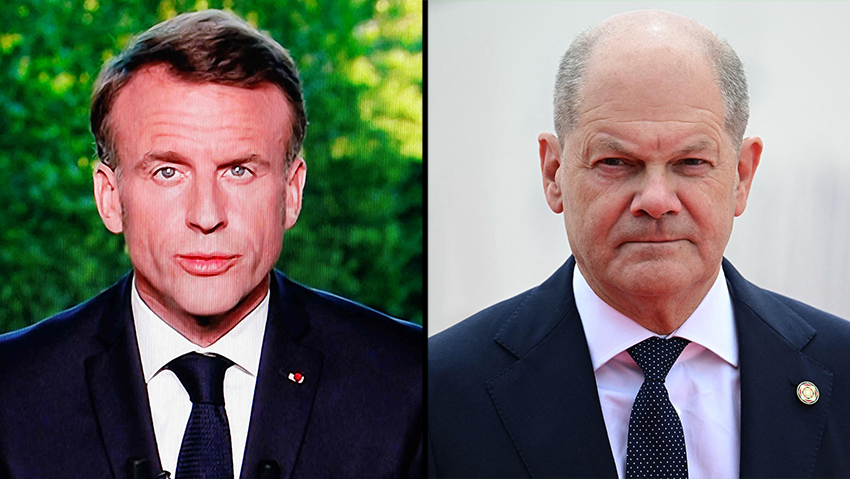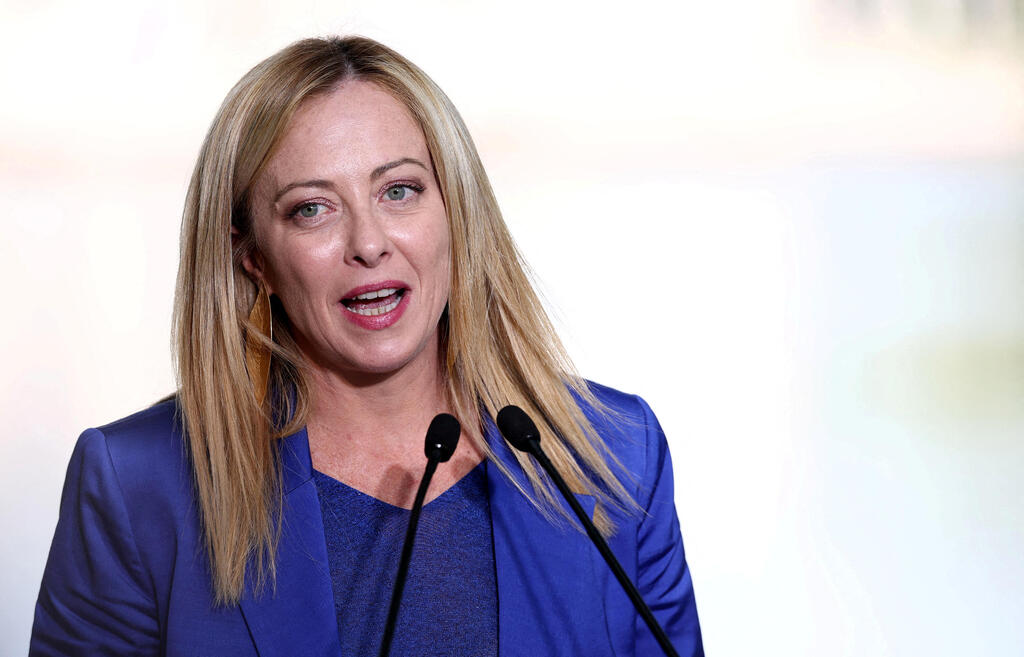In a remarkable shift, far-right parties have made significant gains in the European Parliament elections that concluded on Sunday, poised to amplify their influence on EU immigration policies. Nearly a quarter of the upcoming seats will be occupied by nationalist, populist and Eurosceptic lawmakers. These lawmakers, once advocates for withdrawing from the European Union and abandoning the euro, now aim to reshape the continent's policies from within.
Far-right parties clinched top positions in Italy, Austria and France. In France, following disappointing results for his centrist party, President Emmanuel Macron dissolved the National Assembly and called for snap elections to regain voter trust. "We cannot pretend nothing happened," Macron said, warning that the far-right's rise threatens not just France but the entire continent.
AfD party celebrating results
(Video: Reuters)
Marine Le Pen emerged as the big winner in France's European Parliament elections, declaring her party's readiness to "take power, defend French interests and put an end to mass immigration." Le Pen's party secured over 30% of the French vote—double that of Macron's centrist party.
In Germany, the far-right Alternative for Germany (AfD) secured second place, surpassing Chancellor Olaf Scholz's Social Democratic Party, which recorded its worst result in history. Scholz's party lost votes to both the far-right and the conservatives. Unlike Macron, Scholz ruled out the possibility of new elections.
Despite the far-right's success, centrist, left-wing and liberal parties are still expected to hold the majority of seats in the European Parliament, which totals 720. However, the rightward shift is likely to complicate the approval of new laws needed to respond to security challenges, the climate crisis or economic competition with China and the U.S.
The extent of power nationalist and Eurosceptic parties will wield in the European Parliament remains to be seen. Their effectiveness will largely depend on their ability to overcome differences and cooperate, as their members are part of two different pan-European parties, with some unaffiliated.
The European Parliament elections, held every five years, marked the first vote since Brexit in 2020. Each of the 27 member states receives a number of seats based on its population size: Germany, the continent's most populous country, is allocated 96 seats, while Luxembourg, Cyprus, Estonia and Malta each receive six. Europeans vote primarily for pan-European parties, which include a range of local parties.
2 View gallery


French President Emmanuel Macron and German Chancellor Olaf Scholz
(Photo: MIGUEL MEDINA / AFP, Ludovic MARIN / AFP)
The European People's Party (EPP), a center-right party, will remain the largest in the European Parliament, winning 189 seats across the continent. The EPP includes the ruling party of Polish Prime Minister Donald Tusk, which secured first place in Poland, and Spain's People's Party, which also won, ahead of Prime Minister Pedro Sánchez's Socialists.
One of the EPP members is Ursula von der Leyen, president of the European Commission, who is seeking re-election. Following the elections, von der Leyen warned of "extremists from both the left and right who have gained power," highlighting the significant responsibility now resting on centrist parties.
The EPP also topped the vote in Germany. Alternative for Germany came in second with 16.5% of the German vote, up from 11% in the 2019 elections. This success came despite a series of scandals leading up to the election, including a candidate who controversially claimed that not all SS members were criminals. Chancellor Scholz's left-wing party finished in fourth place. The three parties in Scholz's center-left coalition collectively received close to 30% of the vote.
The center-left Socialists and Democrats (S&D) party is expected to be the second-largest party with 135 seats, despite losing some ground. Analysts attribute its weakening and the rightward shift to rising living costs, fears about immigration, the transition to green energy, and the war in Ukraine—all issues that nationalist parties effectively leveraged in this election.
The European Conservatives and Reformists (ECR) party, comprising nationalist and Eurosceptic parties, increased its power, winning 73 seats. The ECR includes Fratelli d'Italia, the party of Italian Prime Minister Giorgia Meloni, who said that the results show Europe is moving toward the center-right and needs to implement pragmatic steps.
The far-right Identity and Democracy (ID) party, which includes Le Pen's National Rally, also gained strength, securing 58 seats. Local far-right parties that did not join a pan-European faction, such as Alternative for Germany, received 45 seats.
The Green parties suffered a significant blow in the elections, with their representation in the European Parliament reduced to 53 seats. The liberal Renew Europe movement also weakened, securing 80 seats.
In summary, the European Parliament elections have significantly reshaped the political landscape, with far-right and nationalist parties making substantial gains. While centrist, left-wing and liberal parties still hold the majority, the rightward shift is likely to impact the legislative process and the future direction of European policies.




